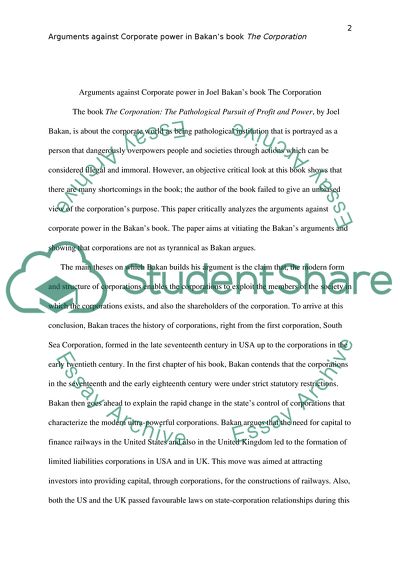Cite this document
(Arguments Against Corporate Power in Joel Bakans Book The Corporation Report/Review - 4, n.d.)
Arguments Against Corporate Power in Joel Bakans Book The Corporation Report/Review - 4. https://studentshare.org/sociology/1813741-critically-analyze-the-arguments-against-corporate-power-in-joel-bakans-book-the-corporation
Arguments Against Corporate Power in Joel Bakans Book The Corporation Report/Review - 4. https://studentshare.org/sociology/1813741-critically-analyze-the-arguments-against-corporate-power-in-joel-bakans-book-the-corporation
(Arguments Against Corporate Power in Joel Bakans Book The Corporation Report/Review - 4)
Arguments Against Corporate Power in Joel Bakans Book The Corporation Report/Review - 4. https://studentshare.org/sociology/1813741-critically-analyze-the-arguments-against-corporate-power-in-joel-bakans-book-the-corporation.
Arguments Against Corporate Power in Joel Bakans Book The Corporation Report/Review - 4. https://studentshare.org/sociology/1813741-critically-analyze-the-arguments-against-corporate-power-in-joel-bakans-book-the-corporation.
“Arguments Against Corporate Power in Joel Bakans Book The Corporation Report/Review - 4”. https://studentshare.org/sociology/1813741-critically-analyze-the-arguments-against-corporate-power-in-joel-bakans-book-the-corporation.


